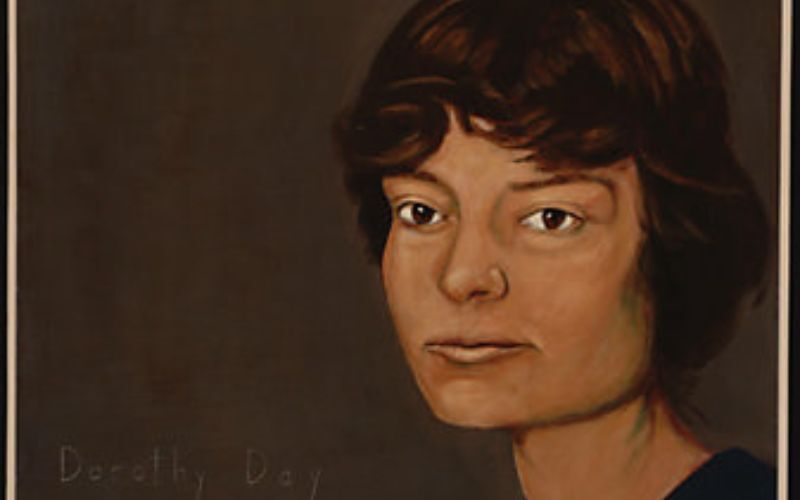Social Activist, Journalist 1897-1980
The biggest mistake sometimes is to play things very safe in this life and end up being moral failures.
Additional Quotes by Dorothy Day
We are the nation the most powerful, the most armed and we are supplying arms and money to the rest of the world where we are not ourselves fighting. We are eating while there is famine in the world.
We believe in loving our brothers regardless of race, color or creed and we believe in showing this love by working for better conditions immediately and the ultimate owning by the workers of their means of production.
They cannot see that we must lay one brick at a time, take one step at a time.
Food for the body is not enough. There must be food for the
We must recognize the fact that many Nazis, Marxists and Fascists believe passionately in their fundamental rightness, and allow nothing to hinder them from their goal in the pursuit of their mission.
soul.
Words are as strong and powerful as bombs, as napalm.
Biography
Dorothy Day combined her political passion for justice and equality with her religious commitment for serving the destitute. She wanted her words to match precisely with her deeds. She took a vow of poverty and lived a life of service to the poor in the hospitality houses ( an extension of the work that Jane Addams did in Hull House) that she helped to establish in cities across the U.S. She worked tirelessly and was arrested often in the struggles for womens rights, birth control, workers rights, and against war. Her quote about playing things very safe and ending up moral failures reflects the attitude of everyone in this series. Think for a moment how different the world would be if Rosa Parks, Martin Luther King, Jr., Cesar Chavez, and Rachel Carson had played it safe. What if Sojourner Truth, Mother Jones, William Sloane Coffin, and Muhammad Ali had played it safe?
Dorothy Day was born in New York in 1897. Her childhood was spent mostly in Chicago, and she attended the University of Illinois in Urbana for two years before returning to New York with her family in 1916. Her reading of such authors as Tolstoy and Upton Sinclair deepened her concern for the sufferings of the poor. Day's conversion to Catholicism followed the birth of her daughter. She was now committed to a revolution of the heart, a revolution in which the human individual experiences the transforming change of heart and renewal of spirit to which the Gospel calls all persons to care for the hungry and despised.
In Peter Maurin, Dorothy Day met a like-minded believer and reformer. In 1933 the two began the Catholic Worker movement, which not only published an influential newspaper but founded a number of hospitality houses to serve the homeless.
"What we would like to do is change the world, make it a little simpler for people to feed, clothe, and shelter themselves as God intended them to do. And by fighting for better conditions, by crying out unceasingly for the rights of the workers, the poor, of the destitute we can work for the oasis, the little cell of joy and peace in a harried world." The author of these words is even now being considered for sainthood in the church she loved, but shortly before her death in 1980 she said: Don't call me a saint. I don't want to be dismissed so easily.

